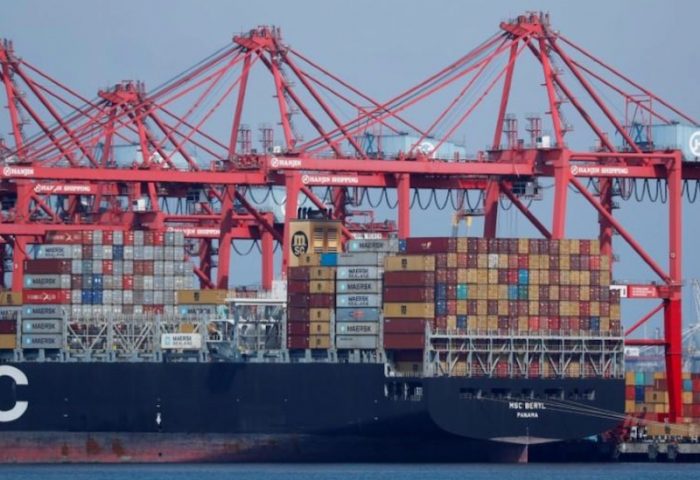State media in China have said it will make a joint response to US tariffs with Japan and South Korea, but its neighbours – both US allies – say discounted the claim.
Tokyo said there was no such discussion and Seoul said the report, about a ministerial meeting to discuss boosting regional trade, was “somewhat exaggerated.”
The media comments came after the three countries held their first economic dialogue in five years to explore the possibility of lifting regional trade as the Asian export powers brace for tariffs by US President Donald Trump.
ALSO SEE: China, Japan, South Korea Boost Trade Ties, as US Tariffs Loom
Japan and South Korea are seeking to import semiconductor raw materials from China, and China is also interested in purchasing chip products from Japan and South Korea, the account, Yuyuan Tantian, linked to China Central Television, said in a post on Weibo.
All three sides agreed to strengthen supply chain cooperation and engage in more dialogue on export controls, the post said.
Supply chain cooperation was at issue that Chinese President Xi pushed at a meeting with foreign CEOs last week.
When asked about the report, a spokesperson for South Korea’s trade ministry said “the suggestion that there was a joint response to US tariffs appears to have been somewhat exaggerated,” and referred to the text of the countries’ joint statement.
‘Just an exchange of views’
Japan’s Trade Minister Yoji Muto, when asked about it at a press conference on Tuesday, said there was a meeting of trade ministers at the weekend but there were no such discussions.
The meeting was just an exchange of views, Muto said.
During Sunday’s meeting, the countries’ trade ministers agreed to speed up talks on a South Korea-Japan-China free-trade agreement deal to promote “regional and global trade”, according to a statement released after the meeting.
“The three countries exchanged views on the global trade environment, and as you can see in the joint statement, they shared their understanding of the need to continue economic and trade cooperation,” the South Korean trade ministry spokesperson said.
The countries’ trade ministers met ahead of Trump’s planned announcement on Wednesday of more tariffs in what he calls “liberation day”, as he upends Washington’s trading partnerships.
Beijing, Seoul and Tokyo are major US trading partners, although they have been at loggerheads amongst themselves over issues including territorial disputes and Japan’s release of wastewater from the wrecked Fukushima nuclear power plant.
China is also keen to join the Regional Comprehensive Economic Partnership (RCEP), signed by 15 countries in the Asia-Pacific in late 2020, which came into force three years ago.
But analysts say doing so would require agreement from many other signatories to the deal, and they have so far baulked at the idea.
- Reuters with additional input and editing by Jim Pollard
ALSO SEE:
Xi Calls on Foreign CEOs to Help Protect Supply Chains
China Bats Away Trump Offer of Tariffs Reduction For TikTok Deal
China and CK Hutchison ‘Seeking Resolution to $23bn Ports Deal’
China Releases Mintz Employees Amid Push to Lure Foreign Cash
Carmakers Shares Tumble After Trump Announces 25% Auto Tariff
April 2 Set as Date for Unveiling of Trump’s Reciprocal Tariffs
Trump Launches Tariff Wars, China Hits Back With 10-15% Duties
























